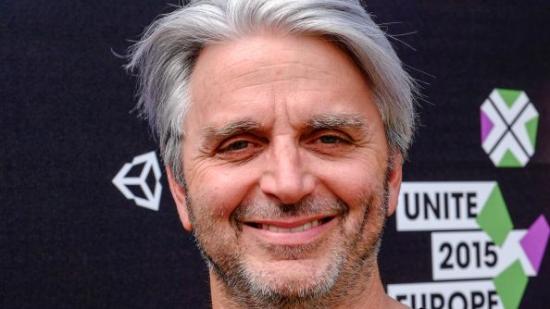When the first wave of indies broke through, they implored everyone to make games – to not be held back by coding inexperience or industry structure, and just built things. And it seems now that everyone’s listened. In the first nine months of 2013, just 304 games were added to Steam; over the same period the following year, the total was 1,300.
Unity have been one of the enablers of that – their engine is affordable, makes porting to several platforms a relative cinch, and has an asset store that fills in the blanks of developers’ abilities. It’s behind Pillars of Eternity, Her Story, Kerbal and Cities: Skylines.
At Unite Europe we found John Riccitiello – onetime placater of EA shareholders, now Unity boss – and picked his brains about where the democratisation of development has led us.
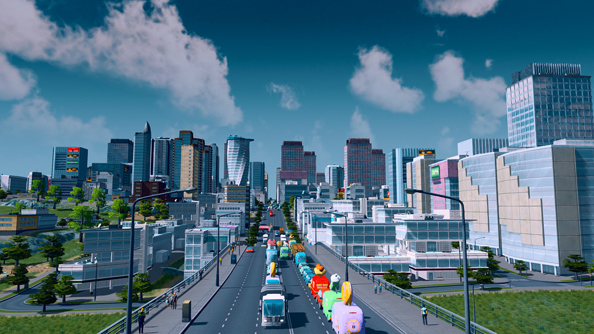
PCGamesN: You said in your keynote that some Unity developers have the potential for huge financial reward, and democratisation is a huge part of your ethos. I was wondering if you think that democratisation makes success harder?
John Riccitiello: You know, I don’t think so. I don’t think that the typewriter, or the personal computer were enablers of novels. It was the tool you needed to write a novel. Realistically speaking, if I have my way, we’re gonna see not five million but 50 million developers around the world using Unity. And the reason for that is that the world is a better place if more people know how to create technology than just consume technology. And I get sad that people look at their television and don’t know how a broadcast signal works, or don’t understand what a codec is.
I’m not suggesting that everyone needs to be a PhD in Computer Science. My point is, the world filled with 50 million people that can build games is a good thing. Does that mean, by definition, fewer games are going to make the Top Ten as a percentage of a much larger denominator? Of course. That’s just math. Generally speaking, I’m always depressed going into a book store because someday I’m gonna write one of these things, and there’s 50,000 seemingly released in just the last month. It looks like the odds are against you. But great stuff prevails.
One of the things that Unity is trying to do is recognise that while we’re promoting democratisation – this idea that we’re going to give you more and more powerful tools so that you can build beautiful, highly-engaging, highly-reviewed, highly-successful games – we recognise that most people don’t.
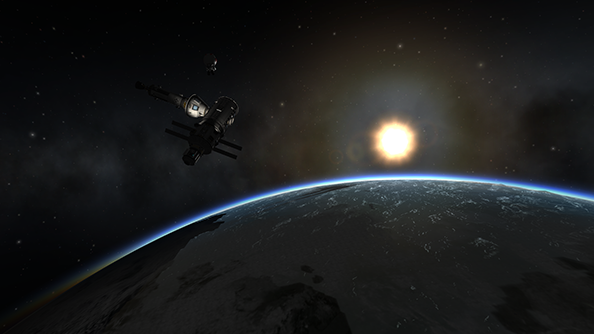
But we want to give those that do the best possible opportunity, and currently the industry is stacked up largely as a series of vertical platforms – the Google ecosystem, the Apple ecosystem, the Samsung ecosystem, the Microsoft ecosystem, the PlayStation ecosystem or the Valve ecosystem. These are all largely unique islands of users. That’s not how users work, but that’s how marketing has stuck working – addressing those individual islands. That’s incredibly expensive and really problematic, and it grew up in an era where people built games for one platform.
People think that we’re all going to consolidate around one platform – it may happen one day, and that platform may in fact be Unity. But before we infect ourselves with megalomania, the larger reality is that we’ve got platform proliferation that’s going to continue for a while. And so developers need to be able to reach an audience, and they’re going to have to aggregate that audience over multiple hardware devices. Otherwise they’re just not gonna get the dollars to be able to pay for great development. We’re trying to adjust the slope of the challenge, so it’s a little easier to address.
PCGN: Do you feel a responsibility towards the people whose careers you’ve helped kickstart?
JR: I think that responsibility, does that word have implications that probably go too far, yes. I mean, look, Ted Kaczynski wrote letters that were about blowing people up and poisoning to death – I don’t think the Smith Corona guys really felt terribly guilty about the fact that he typed them on a Smith Corona. I don’t think they’re really responsible for Ted Kaczynski.
Having said that, I think we’re a little more intimately involved with our developers than Smith Corona is with a letter. We interact with them, they come to our events like this, we shake their hands, we play their games. We’re enthusiasts for what they do. But in the end, it’s because we feel that we’ve an [ability] to help them, and that we’ve been in the industry and there’s a lot of very experienced people here.
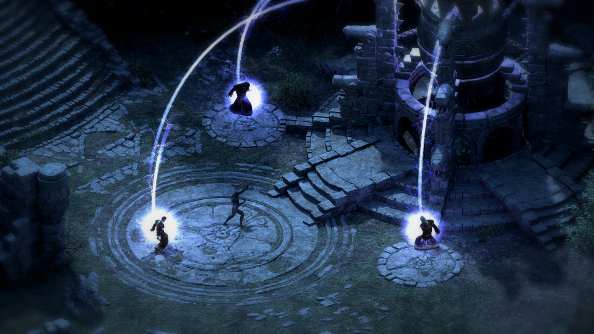
As I’ve said today, Mariina [Hallikainen, Colossal Order CEO] didn’t have two people programming Cities: Skylines, she had 202 people. And at the end of the year she had 302 people. 300 of them worked for Unity but they really worked for her. If that’s what we are, and it is what I think we are, and we have the potential to help them on understanding their business better and understanding their market revenue and then actually build those revenues and discovery, why wouldn’t we do that?
As much as Apple and Google are massively cool companies, they’re not gonna help you find content on the other guy’s platform. So there’s really precious few advocates for the games industry, the people out there that are trying to find success. One of the things that I predict will happen is, you will see if you’re featured in one ecosystem, the other ones won’t feature you on purpose. Exclusivity will be a requirement for featuring support.
In that world, I think we’re the best advocate for the game developer.
PCGN: But the ad solutions you’ve just announced seem quite mobile focused – are there ways that Unity developers on PC could broaden their ways of making money, especially at a time where a lot of small studios are quite frightened of Steam refunds and the swamping of the platform?
JR: Look, I think that the fear of small developers peaked probably six months ago. A week didn’t go by without [hearing] that no game will ever reach the top 15 from an indie. And of course, you heard my keynote [celebrating the success of Unity games]. The minute it was true it had to stop being true. And there’s something endemic in the press that by the time they write it it’s usually over, and that article was everywhere.
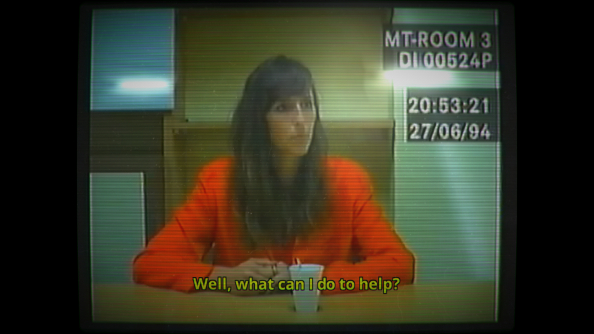
PCGN: Do you think it is harder to find new avenues to revenue on PC, where the audience maybe aren’t so open to watching a 15 second advert to get a reward in-game?
JR: I think that in general there’s a higher concentration of people on PC that prefer and will buy into a premium model. And there is a lesser portion of those people on mobile. The same user on PC thinks it ought to be a premium product, and on mobile they’re quite happy for it to be a microtransaction, free-to-play product. And I think that’s just the way this thing’s fallen. But the biggest ecosystems on PC now are often microtransaction games like World of Tanks, or even many of the MMOs that have gone forward with [payment in chunks].
I think the PC is actually a great place to focus again. I think we’re actually gonna see VR is gonna drive a renaissance of high-end PCs, and the secondary beneficiary of VR and AR is gonna be just high-end PC gaming that can do stuff no other platform can. Of course that just means more art, right, which makes it expensive, so it’ll be a rich man’s game.
PCGN: Do you think the industry has changed somewhat in Unity’s image?
JR: That’s probably putting it too strong. I’d say that Unity has changed to reflect the industry maybe far more so than the industry’s changed to reflect Unity. We’re investing heavily to be the world’s best place to make beautiful games. High-end stuff wasn’t really our shining example.
I talked about enabling success in business, as in [providing] analytics. Now, you could argue that we’re pressing and leading the industry. But for God’s sake, if your ambition is to solve hard problems – you ask any developer what their hard problems are, and they say, ‘I want to make a beautiful fucking game that gets a high Metacritic and sells a lot, and I need money so I can continue to feed my people’. When that’s what you hear time and again talking to developers, and we have our principles, what do you do?
